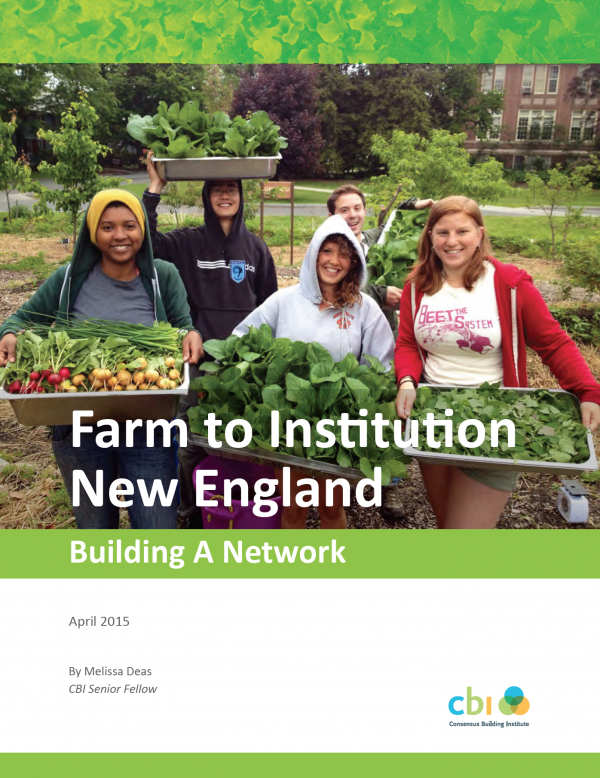
 A new case study about FINE’s evolution as a network
A new case study about FINE’s evolution as a network
We’re excited to release a brand new case study on Farm to Institution New England (FINE) that was developed by Melissa Deas, a senior fellow at the Consensus Building Institute (CBI) in Boston. This report was developed to tell the story of FINE and to better understand how network organizations can be an effective means for change. The CBI prepared this report, drawing on interviews with staff, FINE’s leadership team, funders, and partner institutions that work closely with FINE and internal documents shared by FINE as well as internal documents shared by FINE. This report not only showcases the important work that FINE is doing, but makes an argument that building strong networks for cross-organizational information sharing and collaborative work has value.
This case study by the CBI outlines the principles of network organizations, provides a history of Farm to Institution New England, defines our structure and purpose, and identifies twelve key lessons that can be learned from the evolution of our network:
-
Building a network takes time.
-
Communicating successes are a challenge for network organizations.
-
Patient funders are assets.
-
Active funders can be assets.
-
Networks have a unique advantage for identifying gaps and inefficiencies.
-
Creating shared ownership can be valuable but is also scary.
-
At some point formally defining membership may prove worthwhile.
-
Members only get as much out of the network as they put into it.
-
Research that answers questions not clearly in the wheelhouse of any single organization is valuable.
-
Network organizations can provide more complete maps of the landscape.
-
Transparency and honest debate creates long-term partners.
-
Loose networks such as FINE can create real value.
Kaitlin Haskins is the Farm To Institution New England (FINE) Communications Coordinator. This was originally posted on FINE’s blog.




